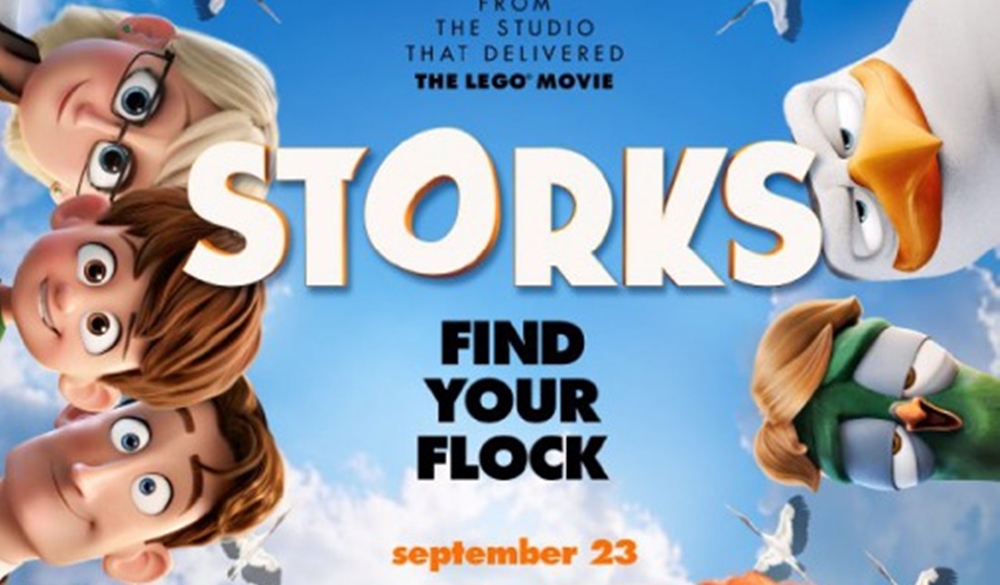Madelaine Pries | Contributor
Featured image: Storks opened in theatres on September 23 with a disappointing opening night of $5.73 million at the box office. | Courtesy of Wikimedia Commons
Making babies has gone out of business. That’s the case at least in Storks, an animated film by Warner Bros. Once upon this animated world, storks actually delivered babies to parents and families, but now they deliver packages for the fictional retail giant, Cornerstone.com.
“We always deliver” may be the motto of stork employees at the Cornerstore.com delivery branch, but it is not the motto impressed on viewers of Warner Bros’ latest kid’s film.
Junior, voiced by Brooklyn Nine-Nine’s Andy Samberg, is the best of the best of Cornerstore.com’s delivery storks. He is offered the position of “boss” on the condition that he first fires Tulip, voiced by Katie Crown, an orphan who was never delivered to her family, instead kept and harboured as a baby by one of the other storks.
Failing at this task, Junior’s dreams of promotion go awry when Tulip accidentally reactivates their company’s baby-making machine, which was shut down years ago when the company switched from delivering babies to delivering merchandise. The baby created is meant for the home of a young boy named Nate, voiced by Anton Starkman, who, due to parental neglect, sent a letter to the storks as his last hope of getting a sibling to play with. To cover his mistake with Tulip, Junior joins her in trying to deliver the baby to Nate’s home.
The scene in which Junior and the baby are taken to a wolf pack’s cave is a perfect example of the plights of the film. Near the beginning of the trio’s adventure, Junior takes the baby and ditches Tulip, only to be knocked unconscious by a band of wolves further along in his journey. When Junior awakes in the cave, he is once again next to Tulip with no questions asked as to how she came to be where she is.
The wolves themselves, voiced by comedians Key and Peele, seem to be a clear rip-off of the beloved scatter-brained pup named Dug from Disney’s Up. However, the slapstick used in this scene, though still violent, is pennies compared to what is seen from the boss of Cornerstore.com deliveries, whose actions dredge up laughs due more to discomfort than real comedic value.
Perhaps the most charming part of the movie is the pink-haired, big-eyed baby whose adorable coos and giggles are almost too much to bear.
Audiences might also appreciate the message driving the film: everybody needs a family. Though it has its downfalls, the moments of tenderness that are laced throughout the film prevail and ultimately give the movie its merit.
Children may find the film entertaining with long-winded jokes, over-the-top characters and slapstick humour as subtle as a rhinoceros in a flaming pink warp suit, but even adults who still enjoy a good children’s flick or the star-studded cast may find many aspects of this film too forced.
The wide success of the Shrek series is due to the fact that these films appeal to the childish humour of children and the mature, sometimes sexual humour of adults. Films like The Minions and Toy Story create characters that transcend age, giving them mass appeal and success at the box office. Storks employs neither tactics, making it too cute for children and too boring for adults.


